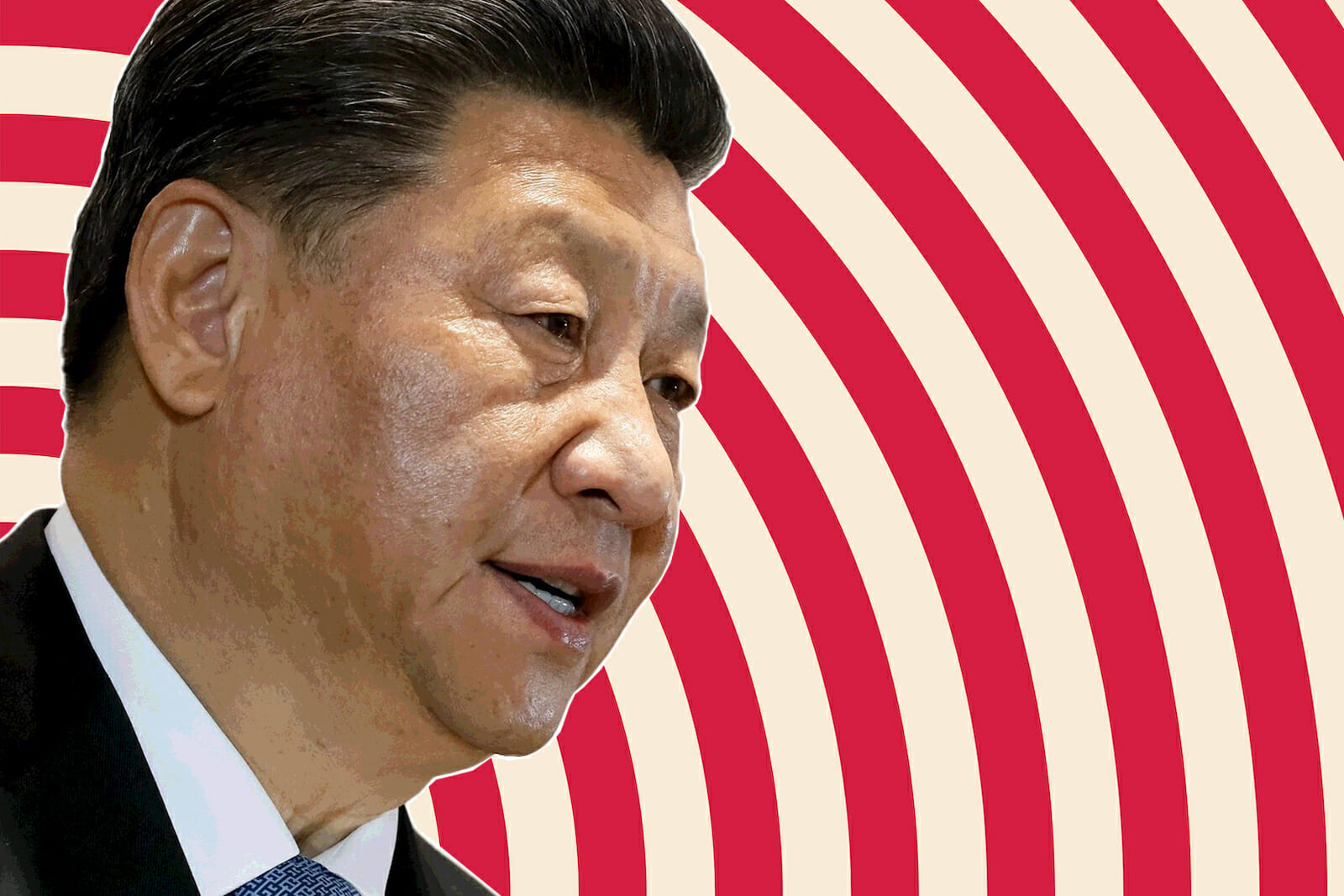
Xinjiang and Discourse Power
On September 25th, Chinese President Xi Jinping held a work conference in Xinjiang Autonomous Region. The conference was a perfect representation of how much power Xi has consolidated. Brandishing a large stage with a packed room of Xinjiang officials, Xi spoke on issues surrounding the province. More interestingly, Xi was accompanied by the entire Politburo Standing Committee, encompassing the country’s seven most powerful government officials. As a final form of subtle signaling, Xi had Primer Li Keqiang preside over the conference and Wang Yang give the closing remarks praising Xi’s speech. Both Li and Wang represent the last vestiges of the Chinese Communist Party’s liberal wing. With their prominent role in the conference, Xi demonstrated the central government’s solidarity.
In Xi’s remarks, he clearly indicated that the party plans to make no changes to their Xinjiang policy. Since 2014, Xi has declared that the Chinese government must conduct an all-out “struggle against terrorism, infiltration, and separatism,” in Xinjiang using the “organs of dictatorship,” and show “absolutely no mercy.” The manifestation of this policy has resulted in organized mass detentions and forced political indoctrination of over a million Uyghur Muslims. According to a new report by the Australian Strategic Policy Insitute, around 65 percent of mosques in the province have either been damaged or destroyed. These developments are part of what Xi has called “the sinification of Islam in Xinjiang.” Sinification is a deliberate effort by the government to undermine local customs in favor of what the CCP determines to be the politically superior Chinese culture.
In Xi’s remarks at the conference, he declared that the government’s policy is “totally correct.” Declaring that the aim of these programs is for “the construction of a high-quality ethnic minority cadre with loyalty to the Party.” Xi also defended the economic advancements in the province. He claimed that since 2014, when his policies began, Xinjiang has enjoyed an average GDP growth rate of 7 percent and his forced relocation programs have raised nearly all three million Xinjiang residents out of poverty. To conclude the spectacle, the CCP’s propaganda machine quickly disseminated Xi’s message. The pages of China Daily and Global Times were filled with exaltations for the Chinese Communist Party, including an editorial in China Daily refuting the charge of human rights abuses in Xinjiang.
Chinese leaders often use high-publicity events to promote policy goals. In 1992, during a moment of slowed economic reform, Deng Xiaoping made a high-profile tour of southern China advocating for renewed economic liberalization. His public advocacy carried significant weight and ignited a reintroduced determination for market reforms. While China’s paramount leaders have near-absolute authority, their ability to implement their decisions is much more difficult. Due to the behemoth size of China’s bureaucracy, as well as corruption, and parochialism, paramount leaders often resort to public events to reinvigorate policy, essentially signaling to the apparatchiks their intentions.
The ability to implement policy through public declarations is called huayuquan (话语权) in Chinese, translated as “discourse power.” Chinese scholar Nadège Rolland defines discourse power as “the ability to voice ideas, concepts, propositions, and claims that are ‘respected and recognized by others’ and, by doing so, to generate the power needed to ‘change the thoughts and behaviors of others in a nonviolent and noncoercive way.’” The concept of Chinese international discourse power has been discussed in the wake of the 19th Party Congress in 2017. The 19th Party Congress is often referred to as the catalyst for China’s shift in foreign policy outlook with Xi Jinping declaring China must be a “global leader in terms of composite national strength and international influence.” Within China’s borders, discourse power is a powerful tool of the state, but when applied to the international system, it gets mixed results.
Rolland explains that one aspect of international discourse power is “a country’s ability to make other international actors accept—or at a minimum, not oppose—its own ideology, values, and objectives…” The ability to expand discourse power beyond the borders of China is a crucial component of Xi Jinping’s foreign policy agenda because it helps guarantee the perpetual rule of the Chinese Communist Party leviathan. China is beginning to exhibit some discourse power abroad in the “Global South,” where China has invested heavily through the Belt and Road Initiative and the China Development Bank.
One of the most recent examples comes in the wake of the CCP’s crackdown on Hong Kong. In clear violation of the “one country, two systems” agreement, Beijing adopted a new national security law that effectively ended Hong Kong’s autonomy. The criticism from the democratic world was stentorian; the response from much of the Global South was reticent. The United Nations Human Rights Council was similarly split. One letter, dominated by 27 of the world’s democracies, condemned China’s national security law; a second letter, supported by a whopping 53 countries, defended China’s action. These countries span from Southeast Asia to the Middle East to Africa and Latin America. The Chinese government maintains close ties with these countries, and with large Chinese investments, it makes Chinese discourse power more persuasive.
This pattern was repeated in July 2019 regarding human rights abuses in Xinjiang. Amongst members in the UN Human Rights Council, 22 democratic countries produced a letter condemning China for its policies in Xinjiang; 50 countries, including many Muslim countries, defended Xi Jinping’s policies. Since that time, there has been enormous stress on China. Several government leaks have confirmed the rumors about China’s policies in Xinjiang, threatening the cohesion of China’s bloc. Additionally, the outbreak of COVID-19 has further weakened China’s international appeal. The separatist country of Somaliland recently opened diplomatic relations with Taiwan, to the ire of China. The Czech Republic, once China’s most ardent friend in Europe, has lost all confidence with the CCP. Adding to the Czech’s antipathy, the speaker of the senate recently declared, “I am Taiwanese” in a moment of solidarity with the island.
With criticisms mounting, China’s work conference in Xinjiang is, in part, an effort to exercise international discourse power for domestic purposes. They are signaling to countries in the Global South, many of which rely on continued Chinese investment, that there is no hesitation on the part of the Chinese Communist Party that the policies being implemented against the Uyghur population are “totally correct.” With Xi’s dramatic display, he confirms the government’s resilience and expects countries to fall in line and not criticize the CCP.
International actors should expect more displays of discourse power from China. Currently, discourse power is used to protect the CCP from international criticism, thereby maintaining legitimacy abroad and ensuring its own security domestically. However, as China embarks on its new global role, it will try to use its discourse power to advance its interests internationally. This could seriously disrupt the current, American-led international order.
